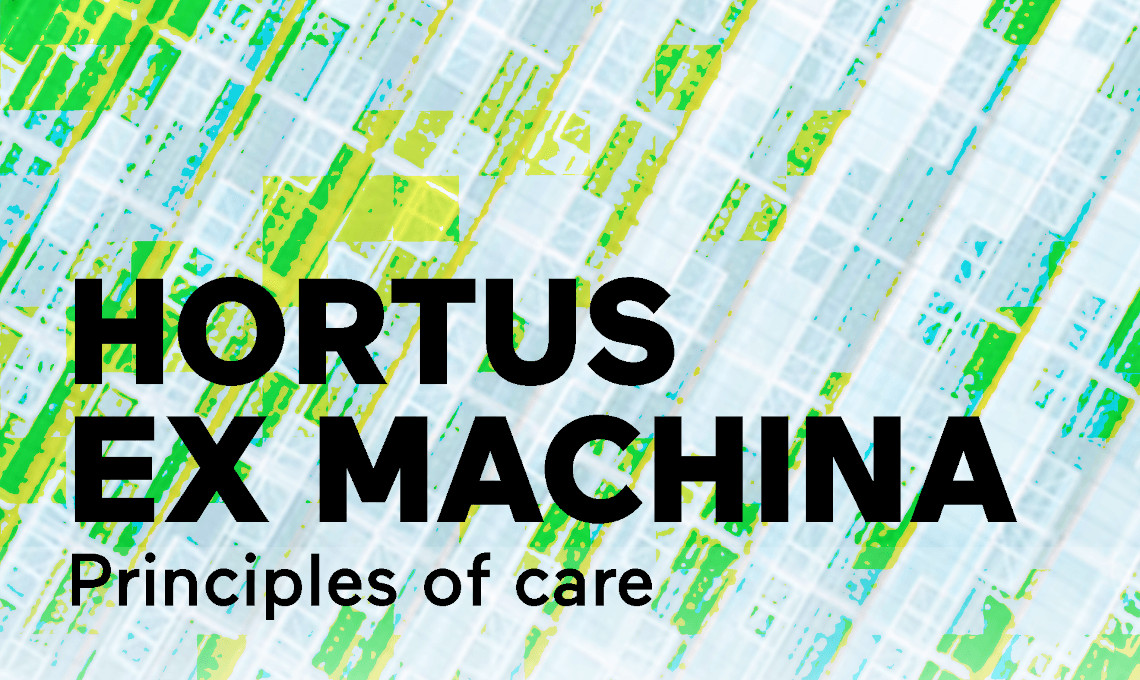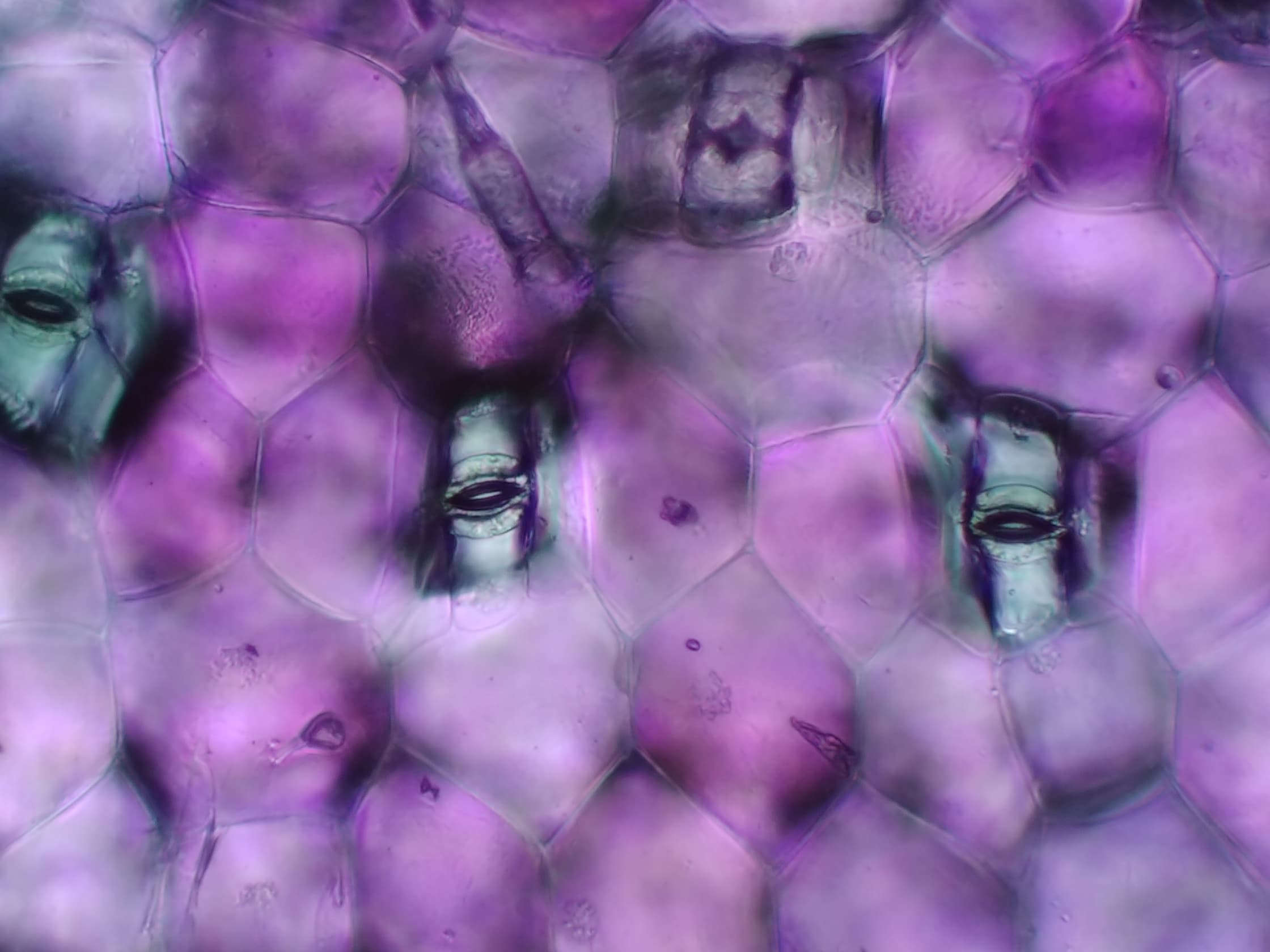On Thursday 20 November, Waag Futurelab will open the exhibition ‘Hortus ex Machina: Principles of Care’ at the Tomatoworld innovation centre. The exhibition explores the intersection of technological innovation and care for plants, people and work in greenhouse horticulture. The programme includes a panel discussion led by Lucas Evers of Waag with experts from the sector. This will be followed by a guided tour of the installations led by Miha Turšič, with artists Penelope Cain and Špela Petrič.
The Dutch horticultural system stands out within Europe due to its size. The sector is also constantly evolving thanks to new technologies and automation. At the invitation of Waag, artists Penelope Cain and Špela Petrič explored the promises of hyper-optimisation in greenhouse horticulture and its ethical and ecological implications. In doing so, they asked themselves: how do the implementation of technology and profit-driven automation influence the relationship between people, plants and work?
Programme
| 18:00 - 18:30 hrs | Walk-in with light snacks, introduction by Miha Turšič (Waag Futurelab) |
| 18:30 - 19:30 hrs | Panel discussion led by Lucas Evers (Waag Futurelab) with Aart van den Bos (Director Tomatoworld) and Noel Haufs (Researcher Smart Farming at Maastricht University) |
| 19:30 - 20:15 hrs | Guided tour of the exhibition with Penelope Cain and Špela Petrič, led by Miha Turšič |
The working language of the panel is Dutch. There will be a tour in English and a tour in Dutch.
Accessibility
If you are short on funds but would like to participate in this event, please contact claudia [@] waag [dot] org.
About the exhibition
The artworks in ‘Hortus ex Machina: Principles of Care’ paint a picture of the experiences and perspectives gained by the artists during their research in the greenhouses. Amidst the complex system that underpins greenhouse horticulture, they reflected in their own way on the underlying principles of care for plants, people and work. In addition to the installations by Cain and Petrič, the exhibition features joint artistic interventions in strawberry cultivation, carried out by artists Ioana Lupascu, Anastasia Eggers and Margherita Soldati on behalf of Waag Futurelab. The exhibition is being held at Tomatoworld, the innovation centre for Dutch greenhouse horticulture.
The exhibition runs until Tuesday 16 December and can only be visited by means of a pre-booked tour. To book a tour, please contact Tomatoworld.
Penelope Cain – The Translator
The Translator speculates on what would happen if robots and plants could communicate with each other. Playfully imagining a future 'Institute For Non-Human Linguistic Culture' that is presenting a narrative play between a group of greenhouse plants and the robot coded to care for them. The video installation reflects on daily reality in Dutch greenhouses, where technology is increasingly taking care of plants, and goes a step further by asking: can machines understand the needs of living things? This playful experiment allows gardeners, researchers and visitors to reflect on the future collaboration between humans, plants and smart machines.
Working with robotic technologist, Charl Linssen
Špela Petrič - The Archive of In-Operables
The Archive of In-Operables focuses on the hidden side of automation in the greenhouse. Numerous sensors monitor the development of life in the greenhouse and produce images intended for processing by machines. By making these images visible, hidden layers of work, employees and everything that lives in the greenhouse are revealed. The work also introduces subtle, poetic “contaminations” that break through the daily routine and make you think about who has control and freedom of movement in this high-tech system. How can people stay in touch with the living processes behind the data and automation?
Trouble with Labour
Trouble with Labour consists of an artistic intervention in strawberry cultivation at Trayplant in Bavel, the Netherlands. Together with experts from the horticultural sector, artists Ioana Lupascu, Anastasia Eggers, Špela Petrič and Margherita Soldati investigate the often invisible methods of care between workers, machines and plants within horticulture. Their interventions show how attention, maintenance and embodied knowledge shape innovation that goes beyond efficiency and productivity. How can care itself be recognised, strengthened and reshaped as the basis for a more just and resilient future in greenhouse horticulture?






